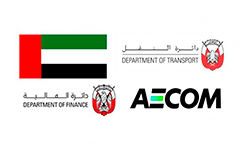Trade Facilitation Master Plan for Abu Dhabi Customs Administration (2012-2013)
 CBRA participated as the trade facilitation working group facilitator in ADLAP-project during years 2012-2013.
CBRA participated as the trade facilitation working group facilitator in ADLAP-project during years 2012-2013.
Summary:
The goal of improving Trade Facilitation is to help make trade across borders more efficient, ensuring safety and security. Trade facilitation impacts the physical movement of goods and also the associated information flows. Through improved trade facilitation logistics, companies and traders will gain higher predictability, higher speed of operations and lower transaction costs. This results in more competitive imports and exports on global markets. For the public sector, it means enhanced revenue collection, better use of resources and increased trader compliance.
Current situation in Abu Dhabi: The ADLAP study has identified a range of issues experienced by logistics and trade companies in Abu Dhabi relating to delays and high administrative costs in cross-border operations. There are limitations in the transparency, standardization and harmonization of cross-border regulations and requirements.
Working Group Outcomes and Strategic Actions: Led by Abu Dhabi Customs Administration (ADCA), Trade Facilitation Working Group utilised the United Nations Trade Facilitation Implementation Guide (TFIG) to help generate its Action Plan recommendations. These actions include but are not limited to the introduction by ADCA of single window web-services, the reduction of procedural obstacles, the introduction of an Authorized Economic Operator (AEO) Program, the enhancement of customs risk management capabilities and the creation of new knowledge on key performance indicators and measures. The working group will continue to ensure the necessary public-private sector interaction to execute these plans.
Four strategic themes are identified within the Action Plan:
• Creating greater transparency in cross-border logistics and trade information. A high degree of transparency, clarity and ease-of-access to governmental information related to cross-border logistics and trade is required. The working group will support ADCA to further identify information gaps and in the development of a single point cross-border logistics and trade web-portal.
• Reducing border crossing times. Fast and predictable border crossing times are required including rapid customs release times with high safety and security standards and practices. The group will work with ADCA, for example, on the introduction of an advanced cargo information scheme and will organize dialogue between stakeholders to better understand the availability of pre-arrival and pre-departure data.
• Reducing administrative costs. Low administrative costs are essential including personnel and data management costs for logistics and trade to comply with governmental cross-border regulations and requirements. One example action is to design and implement a complete transactional single window web-service covering all data and document exchange between logistics and trade and all relevant government agencies.
• Organizing sustainable public-private partnership. There is a need for a strong, dynamic and sustainable public-private partnership arrangement between customs, logistics and trade in Abu Dhabi. As a development of the working group, ADCA will seek to establish a permanent Trade Facilitation Partnership Forum. The working group will help draft a MoU between public and private sector organizations setting out objectives, principles, roles and responsibilities.
Publications and presentations:
Forthcoming:


